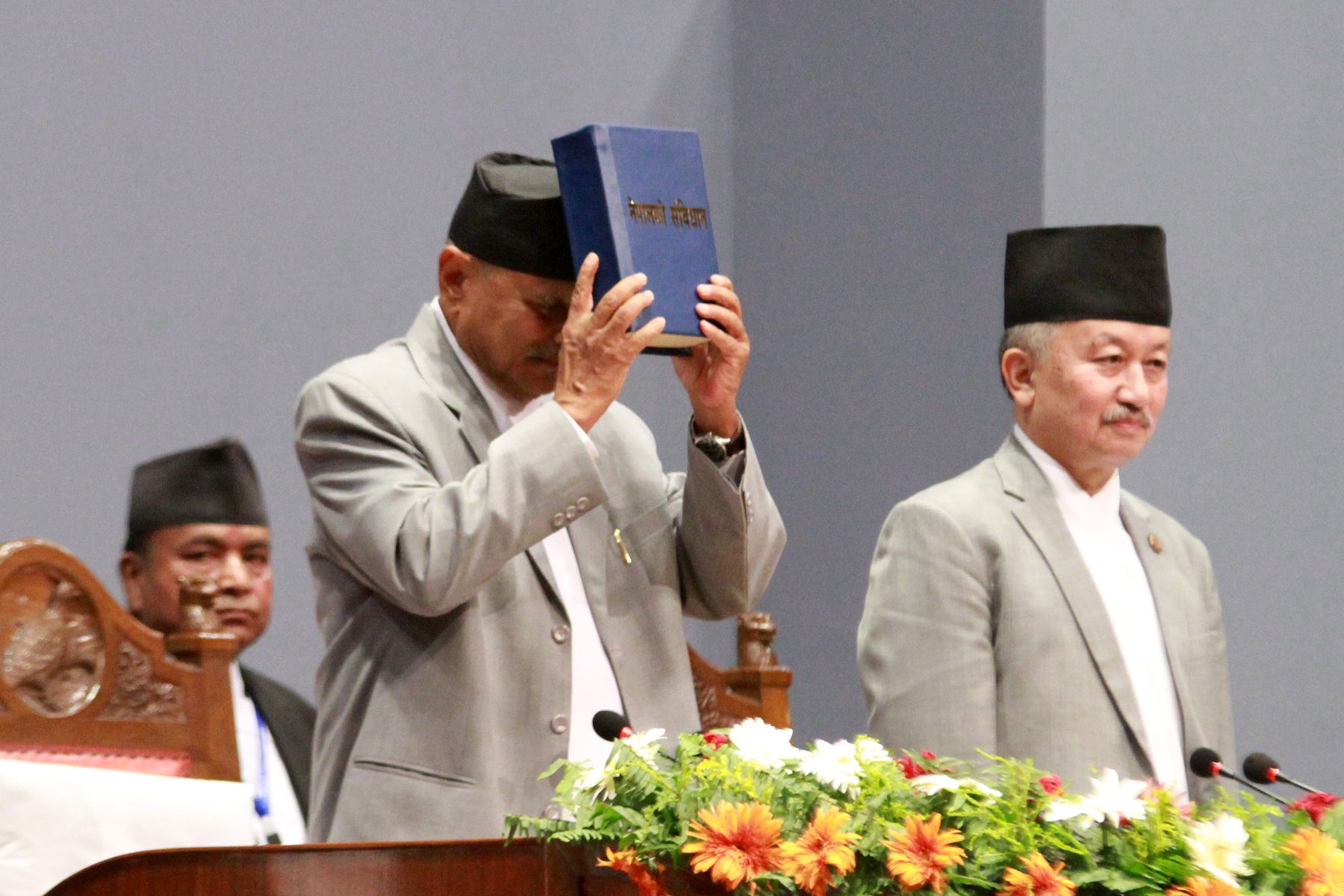
Kathmandu (Pahichan) November 22 – Constitution, Supreme Court precedents and other international treaties of which Nepal is a party have recognized the rights and existence of sexual and gender minority.
The civil and criminal codes, however, have rejected the identity of this community. The article 18 of the constitution has ensured the rights to equality and article 42 has guaranteed the social justice of all citizens irrespective of their class, ethnicity and gender.
The codes that came into from August 15, has rejected the identity of this community. The codes have not embraced the existence of this community.
The Supreme Court on 2064 Poush 6 issued a directive to government, requesting government to legalize the same-sex marriage and ensure the identity of LGBTI in society which was a landmark decision towards ensuring the rights of LGBTI. Following the court order, government formulated a committee which has already submitted its report.
The constitution has recognized the transgender in two places. The article 18 of constitution says, “ The State shall not discriminate citizens on grounds of origin, religion, race, caste, tribe, sex, economic condition, language, region, ideology or on similar other grounds. Provided that nothing shall be deemed to prevent the making of special provisions by law for the protection, empowerment or development of the citizens including the socially or culturally backward women, Dalit, indigenous people, indigenous nationalities, Madhesi, Tharu, Muslim, oppressed class, Pichhadaclass, minorities, the marginalized, farmers, labours, youths, children, senior citizens, gender and sexual minorities, persons with disabilities, persons in pregnancy, incapacitated or helpless, backward region and indigent Khas Arya.”
Similarly, article 42 of constitution says, “42. Right to social justice:(1) The socially backward women, Dalit, indigenous people, indigenous nationalities, Madhesi, Tharu, minorities, persons with disabilities, marginalized communities, Muslims, backward classes, gender and sexual minorities, youths, farmers, labourers, oppressed or citizens of backward regions and indigent Khas Aryashall have the right to participate in the State bodies on the basis of inclusive principle.”
The civil and criminal codes, however, has said that there must be male and female for the marriage. The codes have not talked about the same-sex marriage. In the article 67 and 77 same provisions are reiterated. Former Justice of Supreme Court says such provisions means civil and criminal codes have not recognized the verdict provided by SC, He said instead of male and female, sexual and gender minority should have been mentioned. Similarly, there are same provisions when it comes to the rights of parental property. KC said if such provisions are challenged in Supreme Court, such provisions in civil and criminal codes could be nullified. He said such provisions clearly contradict the constitutional provisions. “Transgender should get an opportunity to live with their own existence, being transgender is not any diseases. Government cannot interfere if they live in the same room,” said KC.
Advocate Hari Phuyal who was a member of government committee formed to suggest ways for legalizing same-sex marriage said that drafters of civil and criminal codes are not positive about the identity of this community.
There are other several provisions in codes which have mentioned only about the male and female. That is why members of this community are denied from the property rights, rights to adopt the children among others.
Summary of news report published in Nagarik Daily
Copyright © All right reserved to pahichan.com Site By: Sobij.